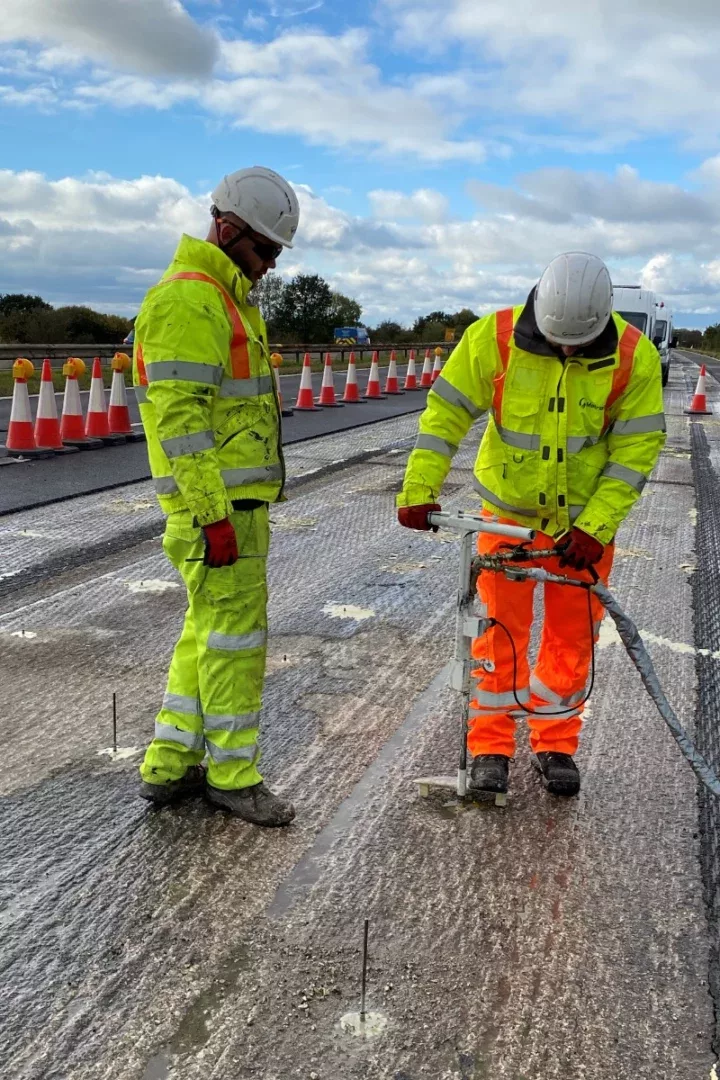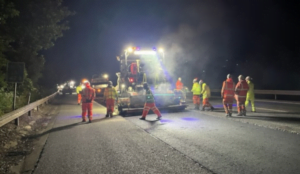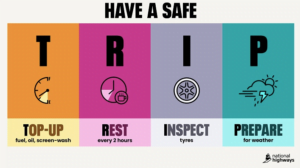A new way of repairing concrete roads is being trialled on a section of the M180 in North Lincolnshire.
The hard shoulder, lane one and lane 2 of the eastbound carriageway between Junction 1 (Tudworth) and Junction 3 (Midmoor), near Scunthorpe, has experienced issues with water getting through carriageway joints and under the concrete. As vehicles drive along the road, the concrete pushes the water back up through the joints causing the surface to deteriorate.
Now, a tough, durable resin is being injected into it to stabilise the concrete and extend its life in a first for National Highways’ strategic road network.
Under the £5.2m scheme, the top layer of the road has been planed off to expose around 30,000 square metres of concrete. Some 20,000 holes are being drilled into the concrete which are filled with short, narrow tubes called packers. Resin is then injected into the packers through the concrete, which forces out any water held underneath, the resin then hardens and stabilises the concrete base before the carriageway is resurfaced.
The work is expected to reduce the frequency of roadworks along this busy section, which is used by around 16,000 vehicles a day.
Esref Ulas, National Highways Project Manager, said, “The M180 was built around 40 years ago and has served our customers well but recently we’ve had to carry out a number of unplanned roadworks on this section due to water damage, which we know has been frustrating for people.
“At National Highways we are constantly striving to improve journeys by using innovative solutions to prolong the life of our assets. This new approach to stabilising the concrete should make those unplanned roadworks a thing of the past. The resin is designed for longevity and should extend the life of the road’s surface by another 10 years or more.”
The resin injection work, which started last autumn, is being carried out by Metrail Construction Ltd. It’s a method used by Metrail’s cross-pollination of skills based on infrastructure assets commonly associated with the rail industry to stabilise tunnels, including on the London Underground, but this is the first time it’s been used on England’s strategic road network.
Martyn Sherwood, Managing Director of Metrail added, “We are particularly pleased to be working closely with National Highways to introduce this innovative technique to the maintenance of the UK’s strategic road network.
“The unique formula of the resin used and its rapid hardening capability, which allows carriageways to be opened much more quickly, is cost effective and a gamechanger for concrete road maintenance in the UK.
“We are looking forward to continuing to support National Highways in meeting its maintenance objectives going forward.”
Once the concrete stabilisation is complete a second phase of the project to repair and seal the joints between the concrete slabs will be carried out.
The whole programme of work is due to end in February.
(Picture – National Highways)





















